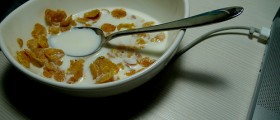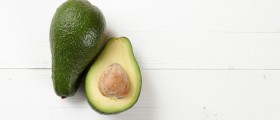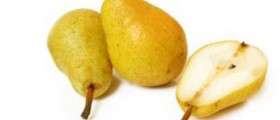
Dietary fiber is one of the most important nutrients in humans’ diet. The fiber is the indigestible portion of plant foods that acts by changing the composition of the contents of the gastrointestinal tract, and the way other important nutrients are absorbed. More recently, dietary fiber came into the focus as the most beneficial nutrient for health promotion and disease prevention. Today it is well known for its benefits in the prevention of heart disease and colon cancer. Fiber is sometimes added to the foods during food processing, and it usually consists of the isolated nondigestible carbohydrates thar are very beneficial for the human health. The American Dietetic Association also recommends consuming a variety of fiber-rich foods.
Benefits of dietary fiber
Dietary fiber comes in two main types: as soluble or insoluble. Soluble fiber is fermented in the colon into gases and physiologically active by-products. Insoluble fiber is indigestible, and it only absorbs water from the digestive system, promoting the bowel movements.
Insoluble fiber is known to reduce blood cholesterol levels and optimize the blood sugar levels. Insoluble fiber can lower serum cholesterol by reducing the absorption of dietary cholesterol. The fibers can normalize the blood sugar levels by slowing the rate at which the food leaves the bowel and thus delaying the absorption of glucose. This process is very beneficial for dieters, as it promotes the feeling of satiety and gradually releases the sugar into the blood, preventing overeating and unwanted weight gain.
Soluble fibers are fermented by the friendly bacteria that live in the large intestine. This results in a production of a butyric acid, which is a primary energy for the cells of the large intestine. This acid is very beneficial for the colon health and it also powers the liver and the muscles. In animal studies, this acid has been shown to inhibit the production of cholesterol by the liver, which results in lower blood cholesterol levels.
A diet rich in fiber may prevent or treat breast cancer, cardiovascular diseases, colon cancer, constipation, diabetes, gallstones, diverticulitis, high cholesterol, irritable bowel syndrome, obesity and syndrome x.
Food sources
Dietary fiber is found exclusively in plants. Some processed foods contain added fiber as a supplement. Fantastic natural sources of dietary fiber are turnip greens, mustard greens, cauliflower, collard greens, broccoli, Swiss chard and raspberries. Very good sources include romaine lettuce, celery, spinach, fennel, green beans, eggplant, cranberries, strawberries and flax seeds. Cucumber, apricots, navy beans, grapefruit, rye, sweet potato, beets, buckwheat, shiitake mushrooms and oats are also loaded with fiber and available throughout the year.

















Your thoughts on this
Loading...